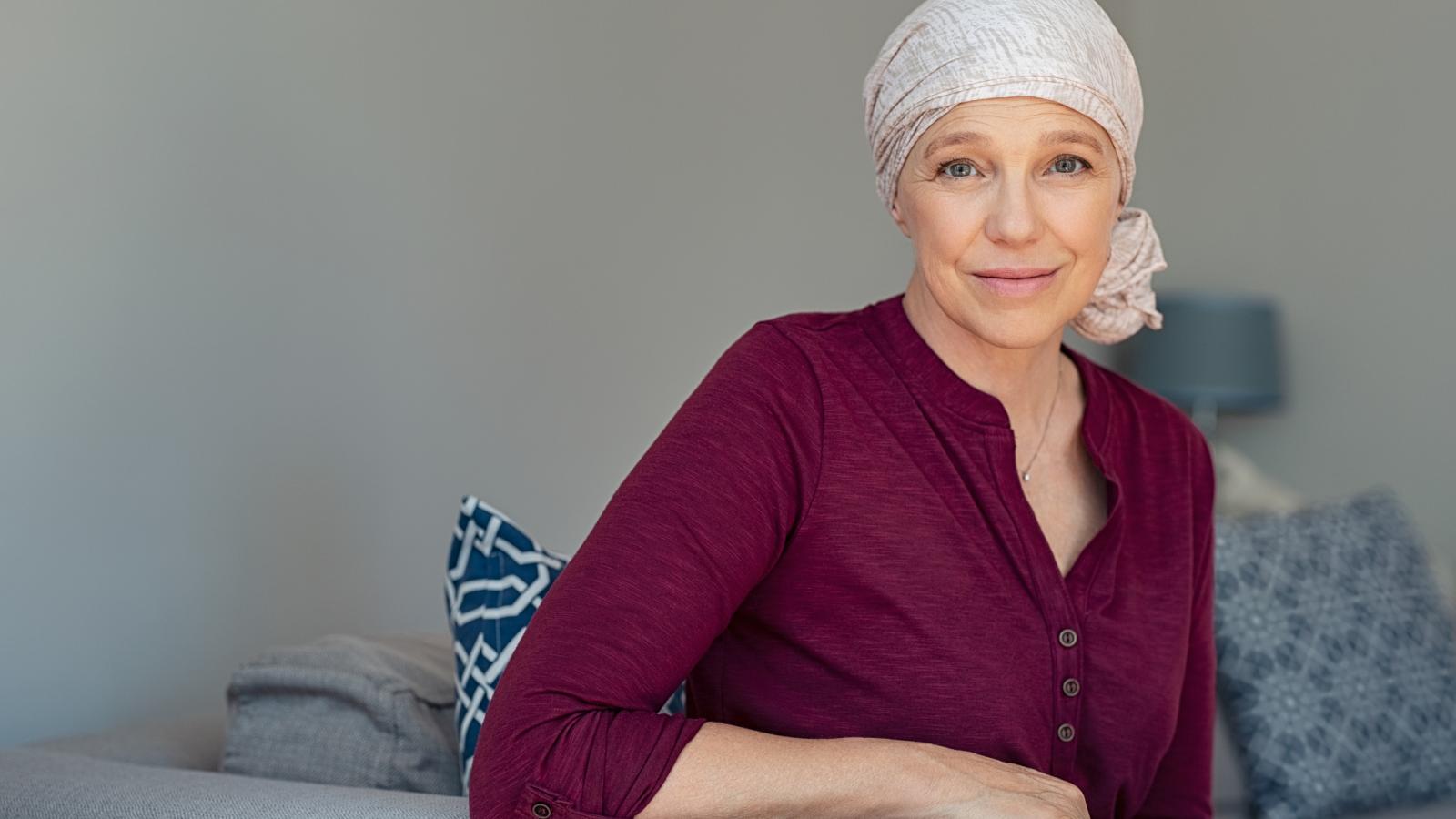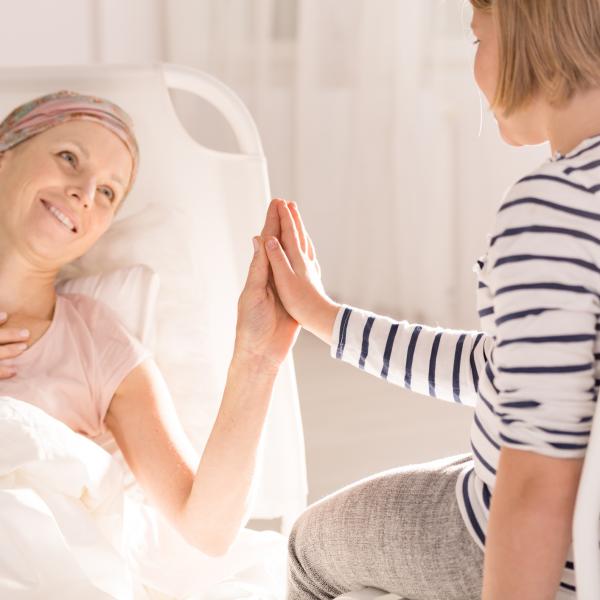Coping with hair loss

Losing your hair can be very upsetting, especially when you are already coping with your cancer diagnosis and treatment. There are things that can help you to feel better – and remember – hair nearly always grows back again after treatment has ended.
Sharing your feelings
Your cancer nurse can support you if you’re worried or need more help or information. You can also talk to the medical social worker about your feelings, if your hospital has a medical social worker. You can also call our Support Line on 1800 200 700 or drop into a Daffodil Centre if you have questions about hair loss or if you just want to talk.
Feeling better about the way you look
Some people say they feel silly worrying about their appearance when they have been diagnosed with cancer. But it’s important to look after yourself and do things to make yourself feel better and happier.
Wigs and hairpieces
Having a wig that you are happy with can make you feel better about losing your hair. See our section Wigs and hairpieces for information about getting a hairpiece.
At the hospital, your nurse or a member of your healthcare team can advise you about where to go locally for your wig or hairpiece. If you need help with finding a wig supplier, ask at the hospital or call our Support Line on 1800 200 700.
Other headwear
Not everyone wants to wear a wig. There are lots of different hats, scarves and turbans available. If you want to leave your head uncovered, make sure you use sunscreen.
Make up
Some beauticians have experience in caring for people with cancer. But just having your make up done can give you confidence and help you to feel better. You can also get help and advice from the Look Good Feel Better workshops. These offer free hair and make-up advice to women having cancer treatment. Workshops are run regularly in hospitals. The oncology unit can usually give you the telephone number of the contact person at your hospital. Or you can call our Support Line on 1800 200 700 or visit a Daffodil Centre.
Looking your best
Take some time to experiment with make-up, jewellery and clothes to see what suits you and makes you feel better. Some general advice includes drawing attention away from your hair and towards your clothes and accessories. Wearing a brightly coloured top or attractive jewellery, bags or shoes can help redirect the focus and boost your confidence.
Eyebrows and eyelashes
Hair loss can also occur in your eyebrows and eyelashes. Some people get thinning or complete loss of both. Others do not lose their eyebrows or eyelashes at all. If you do lose them, they can take between 6 months and a year to grow back.
Eyelash loss can occur at any time but is more usual towards the end of treatment. It can also occur after treatment has finished.
If you get thinning or hair loss of your eyebrows, you can use eyebrow products to help recreate your natural shape. There are many different products ranging from pencils to powders and also stencils that can be a useful guide. Advice is available from the cosmetic counters of department stores or more privately from your local beautician.
Losing your eyelashes can affect how you look and feel. If your eyes cannot be protected by your eyelashes, they can become sore and uncomfortable. If this happens, speak to your cancer nurse about using eye drops. She will advise you, depending on your treatment.
You can use eyeliner along the top of your eyelid to define your eye, which can work well. You could also try false eyelashes. Choose hypoallergenic eye products and have strict hygiene with the products to avoid the risk of infection.
Other people’s reactions to your hair loss
Who you tell about your hair loss is an individual choice. Some people tell family and close friends, while others are comfortable to tell everyone. This decision may be affected by what type of headwear you choose to wear.
For example, if you choose to wear scarves instead of a wig, your hair loss will be more obvious.
People will respond to your hair loss in different ways. Sometimes their reactions can be hard to deal with.
Usually most people are very supportive but sometimes there are others who can say things that are unhelpful and even hurtful without meaning to. It can help to be prepared for any kind of reaction. In fact, some people may just think you have a new hairstyle.
Think about what you will say and to whom. The decision is yours but try not to withdraw from your social life and your friends because of your hair loss.

Preparing children
If you have children, you may wonder how and what to tell them. In general, children are less frightened when they know what is going on, even if they do not fully understand it. Despite it being difficult, talking to your children about your cancer will be helpful to all of you. It can prepare them for what to expect.
It may help to explain that your hair will grow back and what you plan to wear while it is gone. Children will react differently and some may find it upsetting to see you without your hair. But talking about it openly in your home will help them feel more secure.
Download our booklet Talking to Children about Cancer: A Guide for Parents:
For more information
Phone
1800 200 700



